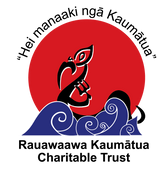About Us
Rauawaawa Kaumātua Charitable Trust
Rauawaawa Kaumātua Charitable Trust is non-profit charity, established and led by Kaumātua which services the needs of Kaumātua based in Hamilton, Waikato with its vision:
Hei Manaaki Ngā Kaumātua
Enhancing the quality of life and wellbeing of Kaumātua

Rauawaawa was incorporated in 1997 by several Kaumātua in Hamilton to help address the issue of loneliness being experienced by a growing number of Kaumātua at that time. Today, Rauawaawa serves over 650 Kaumātua locally and over 300 Kaumātua nationally through various events as the Kaumātua Olympics. The vision of the Trust is to "enhance the quality of life and well-being of Kaumātua" by providing a range of culturally focused and accessible health, social, community based activities and services for our Kaumātua (55 years and older).
With the ever growing ageing population, there is little infrastructure in New Zealand to meet those needs; Rauawaawa offers a Korowai of Services which will wrap around Kaumātua to keep them warm and safe. The Rauawaawa Kaumātua Charitable Trust delivers health, social, educational, cultural, recreational and housing services to meet Kaumātua needs through culturally appropriate and holistic protocols.
REKA - our social enterprise journey
REKA, Rauawaawa Enterprise for Kaumātua Aspirations, is part of our social enterprise journey to help enable Kaumātua Aspirations with the first one being agreed by Rauawaaawa Kaumātua as creating a safer, warmer and better age friendly facility for the Kaumātua of today and tomorrow. Keeping in mind the facility was opened in 1941, Rauawaawa needed a method to generate an income to help Kaumātua and to upgrade the 1941 facilities, so Kaumātua at Rauawaawa developed and inspired the Kuki Reka Kani as part of our social enterprise, REKA.
The cutters and cookies made, packaged and sold locally, nationally and internationally provides a huge sense of success for Kaumātua belonging to the Rauawaawa community are often described as inspirational for what can be achieved by other Kaumātua roopu throughout Aotearoa.
After the pandemic, the Kaumātua of Rauawaawa wanted to support the local community. All cutters and packaging for the cutters are therefore created and manufactured in the Waikato. The Rauawaawa Kaumātua Trust has since raised over $43,198 from sales of Kuki Reka Kani and cookies, to go towards supporting their dementia and age-friendly facility upgrade for Rauawaawa.

Our stage 1 facility upgrade has been accomplished, and stages 2 and 3 remain to be completed before the vision of our Kaumātua is fully realised.
So every purchase of our Kuki Reka Kani helps us become one step closer to a safe, warm, technologically enabled, environmentally friendly and most importantly age friendly facility for our rapidly growing Kaumātua population.
Kuki Reka Kani - Kaumātua inspired cookie cutters
The Kuki Reka Kani are 6 unique cookie cutters, inspired, developed and named by our lovely Kaumātua at Rauawaawa Kaumātua Charitable Trust. The cutters were initiated to help Kaumātua with dementia, to engage in cooking therapy that promoted Te Ao Māori, cultural heritage, and whakapapa in a social and fun way. Cooking therapy stimulates smell, taste and touch senses in dementia patients which can bring back memories from decades ago.

Several hui were held with groups of Kaumātua to help identify the most appropriate Māori designs for use in kai, thus resulting in the Koru, Pāua, Kete, Hei-Matau and Pikorua (both single and double twist) . The chefs at Rauawaawa helped shape the development of the designs to ensure the cutters worked easily with people from Kaumātua engaged in cooking therapy, tamariki in schools, rangatahi in home economics classes, home cooks and their whānau and professional chefs.

The cutters are designed to cut through the dough and leave a pattern imprinted on the dough in one easy push. This makes them gentle on both elderly hands as well as providing a large grip for children to hold. The patterns reflect the look of a chiseled whakairo rākau (wood carving), an important aspect in Māori culture.
